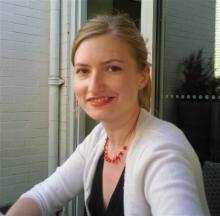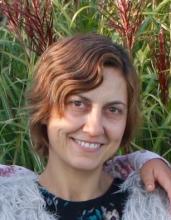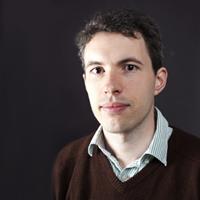Modern and Medieval Languages
St John’s College usually admits about ten undergraduates each year to read Modern and Medieval Languages (MML). The College is able to provide tuition in any of the areas taught by the MML Faculty, and there are Fellows of St John’s who teach French, German, Italian and Portuguese. Native speaker tuition is available in any of the languages taught by the Faculty, and St John’s employs its own French Lector/Lectrice.
Modern linguists at St John’s are able to benefit from generous travel and book grants. There is an active College Modern Languages Society, and the College Library provides very well for undergraduate needs in the subject, including a wide selection of foreign DVDS. The College also has long-established student exchange arrangements with the Universities of Heidelberg and Pavia.
Entry Details
UCAS Code: R800
Typical Minimum Entry Requirements
A Level: A*AA
International Baccalaureate: 42 points, with 776 at Higher Level
Essential Subjects: A Level/IB Higher Level in at least one of the languages taught by the MML Faculty
Desirable Subjects: None
Submitted Work:Two recent pieces of written work, these can include timed essays. Ideally, one should be in English and the other in the language you wish to study at Cambridge (please contact the Director of Studies if you want to discuss what combination of items would be appropriate in your particular case).
Admissions Assessment (Cambridge College registered): Written assessment consisting of 40 minute discursive response in Foreign Language, and 20 minute discursive response in English. More information here.
What we look for in prospective students
Students studying Modern Languages have a broad range of academic profiles. When considering applicants for admission we naturally expect a high standard of competence in at least one of the languages taught by the MML Faculty. We also look for evidence of intellectual curiosity and interest in the kinds of study that are pursued in depth in MML.
We are also very happy to consider applications for any appropriate combination of languages. If you want to take advantage of the opportunity that exists in Cambridge to study a language from scratch (this option applies to German, Italian, Portuguese, Russian and Spanish), then we shall expect to see some evidence at interview that you are making serious efforts to find out what the study of that language and its culture will entail.
More information on the Cambridge MML written assessment, a specimen paper and the marking scheme can be found through the Cambridge admissions page for MML.
Admissions Interviews
In the weeks before the interview, we ask you to choose which language you would like to use for discussion of a passage in a foreign language. If you are applying to study two post A-level (or equivalent) languages, you can choose either one. We do not ask you to prepare a passage for both. If one of the languages you are applying to study will be taken ab initio (from scratch) you will of course have to use a passage in the post-A level (or equivalent) language. You will be given two texts in your chosen language, and you are free to pick whichever one you prefer to discuss in the interview. It does not matter which you choose; they are there to give you some freedom but no significance is accorded to your selection. You will have 30 minutes before the interview to read and think about the passage and make any personal notes you want to about what you notice. You should not consult a dictionary or other external sources in this time. We understand that there may be words you do not know, or that some aspects of the text may not feel clear. This is not something to worry about! Working with unfamiliar expressions and ideas is part of the process.
There is one interview, approximately 40 to 50 minutes in length with the time split between the two languages you are applying to study. At the start of your interview, the overall Director of Studies for MML will welcome you and introduce the other interviewer(s). There will always be an interviewer for each language (the overall Director of Studies may also act as the interviewer for one of the languages). We will start by asking you to discuss the passage you have been preparing, with the interviewer for the relevant language, in the foreign language. The questions will vary according to the kind of text it is, but we will be looking to establish your sense of what is happening in the text, what its implications might be, and how it achieves its effects. There are no specific things we will be expecting everyone to spot. We may direct your attention to particular lines which raise interesting ideas or complications, and/or ask you to try translating a line or two into English. After a while we will move the conversation into English to further explore your interest in the language and the culture associated with it, and anything you have read or thought about in relation to it. This may include elements from your personal statement (but not necessarily).
In the second half of your interview, we will move to talking about the second language you are applying to study. The questions we ask will be fitted to whether you have already studied it, or whether you will be taking it from scratch. If you are studying the language to A level or equivalent, we may ask you to have a brief informal conversation in the language, possibly picking up on interests or ideas raised in your application or in the interview thus far. We will then want to discuss your academic interest in the language and the cultures associated with it, how you have developed your understanding of the language and cultures, and why you wish to study it through the course we offer. For ab initio languages, we will want to explore your interest in the language and associated cultures, why you want to study it at university level, and find out what you know about it already. We might ask you about any books you have read or films you have seen, which relate to the language or the countries where it is spoken (including anything you might have read in English translation). Some interviewers may ask you to try simple exercises using material in the language, at an appropriate level. When undertaking this kind of task, we will be looking to see how you work things out. It is normal for this to be tricky sometimes and to get stuck, so do not worry if you find yourself in need of help.
A digital whiteboard is not used in the interview. It is possible that we might screen share material we wish to use in the interview.
Before the interview, we send you a form asking what texts and topics you have covered at school, and if there are any books or films you would like to discuss in your interview. This is just to give us a head start on what kind of thing you are interested in, and give us the best chance of directing the conversation in a useful direction from the outset.
Throughout the interview, we would encourage you to take your time to think, and to tell us what you are thinking, especially if you feel unsure about something. You are welcome to ask us questions at any point, about anything we are asking you to do. Try not to worry if we move on to a new topic; sadly we do not have time to finish every possible conversation to the end, and this does not mean you have not done well or we have not been interested in what you were saying immediately before. We enjoy meeting you and want to learn as much as we can in the time we have.
People
Directors of Studies
Dr Georgina Evans (Part IA)

Professor Pierpaolo Antonello (Part IB)

Dr Carmen Olmedilla Herrero (Part II)

Tutor
Professor Jason Robinson

Subject Fellows
Professor Pierpaolo Antonello
Professor Patrick Boyde
Dr Marie Chabbert
Dr Georgina Evans
Dr Victoria Harvey
Professor M M G (Manucha) Lisboa
Professor David Midgley
Dr Jules O'Dwyer
College Teaching Associates
Dr Carmen Olmedilla Herrero
Student Perspectives
Follow the links below to learn about our students' perspectives of studying MML at St John's in their own words.
Further Information
Further Information
The Modern Languages Faculty website gives detailed information on course content and other activities in the Faculty, including Faculty Open Days. Alternatively you can phone the Faculty Office on 01223 335000, or email the Faculty at mml-faculty-office@lists.cam.ac.uk.